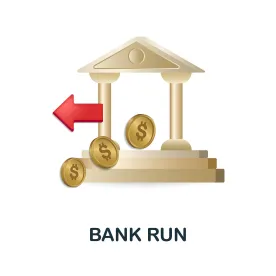Situation Overview
On Friday, March 10, 2023 Silicon Valley Bank (“SVB”), Santa Clara, California, was closed by the California Department of Financial Protection and Innovation. The Federal Deposit Insurance Corporation (“FDIC”) has been appointed as the receiver. To protect insured depositors, the FDIC created the Deposit Insurance National Bank of Santa Clara (“DINB"). At the time of closing, the FDIC as receiver immediately transferred to the DINB all insured deposits of Silicon Valley Bank. The FDIC as receiver will retain all the assets from Silicon Valley Bank for later disposition.
Bank Locations
Silicon Valley Bank had 17 branches in California and Massachusetts. The main office and all branches of Silicon Valley Bank will reopen on Monday, March 13, 2023. The DINB will maintain Silicon Valley Bank’s normal business hours. Banking activities will resume no later than Monday, March 13, including on-line banking and other services. SVB’s official checks will continue to clear.
SVB Assets
As of December 31, 2022, SVB reported $209.0 billion in total assets and approximately $175.4 billion in total deposits. At the time of closing, the amount of deposits in excess of the insurance limits was undetermined. The amount of uninsured deposits will be determined once the FDIC obtains additional information from the bank and customers.
Insured Deposits
All insured depositors will have full access to their insured deposits no later than Monday morning, March 13, 2023. The FDIC will pay uninsured depositors an advance dividend — that’s a portion of how much the FDIC estimates it will be able to recover — and a certificate for however much is left beyond that. The advanced dividend is not yet known. Uninsured depositors will receive a receivership certificate for the remaining amount of their uninsured funds. The FDIC as receiver will be looking for a purchaser or purchasers to acquire some or all assets of Silicon Valley Bank. As the FDIC sells SVB’s assets future dividend payments may be made to uninsured depositors. Customers with accounts in excess of $250,000 should contact the FDIC toll–free at 1-866-799-0959.
SVB Stock
Trading of SVB's parent company, SVB Financial Group, has been halted.
Loan Customers
Customers who have loans with SVB should continue to make their payments as usual. Loan customers should check with their legal advisors as to any right of setoff. The borrower’s obligation to pay has not changed. In the case of a delinquent loan, the FDIC will “set off” the loan against the borrower’s deposits (if any) before paying deposit insurance. In the case of a non-delinquent loan, the depositor might elect to “set off” the loan against his/her deposits in order to receive full value for any uninsured funds (i.e., funds in excess of the $250,000 insurance limit). In either case, no “setoff” is possible unless the obligations are “mutual” – meaning that the borrower and the depositor must be the same person or legal entity acting in the same legal capacity. Customer loans will likely be sold off in the very near future by the FDIC, and a new lender will be put in place.
Lines of Credit
Customers who may have lines of credit with SVB (i.e. revolvers, term loans, letters of credit) will likely not be able to draw down on their existing lines of credit with SVB. Borrowers should immediately consider alternative sources of liquidity / financing.
Mutual Fund Accounts
Customers holding mutual fund accounts at SVB should contact their legal advisors about the status of the account. A determination needs to be made as to whether the account is a deposit account, a sweep account, or a non-deposit investment account. Depending upon the type of account, the customer may be able to gain access to the funds in the account.
FDIC Priority
By law the FDIC will pay claims asserted against SVB as follows: (i) Insured Depositors; (ii) Uninsured Depositors; (iii) General Unsecured Creditors; (iv) Subordinated Debt; then (v) Stockholders. After insured depositors are paid, uninsured depositors are paid next, followed by general creditors and then stockholders. In most cases, general creditors and stockholders realize little or no recovery. Payments of uninsured funds only, called dividends, depend on the net recovered proceeds from the liquidation of the bank's assets and the payment of bank liabilities according to federal statute. While fully insured deposits are paid promptly after the failure of the bank, the disbursements of uninsured funds may take place over several years based on the timing in the liquidation of the failed bank assets.
Liquidity Concerns
Clients with liquidity concerns should immediately look for alternative sources of liquidity / financing. Things will take time to sort through at SVB, despite short term insured deposit payment of $250,000 and the anticipated advanced payment to be paid to uninsured depositors.
Guidance
We anticipate clients adversely affected by the SVB collapse will need immediate guidance with regard to navigating: (i) how to submit a claim to the FDIC; (ii) how to address and solve for immediate financial operating issues (i.e. payroll, paying vendors, liquidity) due to an inability to access funds or lines of credit at SVB ; (iii) whether their accounts at SVB are depository accounts or something else, and how can they access such accounts; (iv) what rights of setoff, if any, may exist against SVB; and (v) whether any losses incurred might be covered by business interruption insurance or other types of insurance.
Some of our publicly traded clients – who may have funds tied up at SVB, or not- should immediately consider whether a public filing may need to be made – i.e. no funds held at SVB, non-material funds held at SVB, or it a material issue that needs some type of reporting.
Finally, the SVB collapse may negatively impact customers of our clients. Any of our clients who may be aware of a customer who deals with SVB (i.e. our client receives payments from a customer who holds an SVB account) should be wary of extending credit to customers absent assurances of the customer’s ability to pay. Also, clients who do business with any technology, venture capital or start-up companies that banked at SVB should be on the look-out for any public reporting or news regarding such company’s exposure to the SVB collapse.






 />i
/>i
